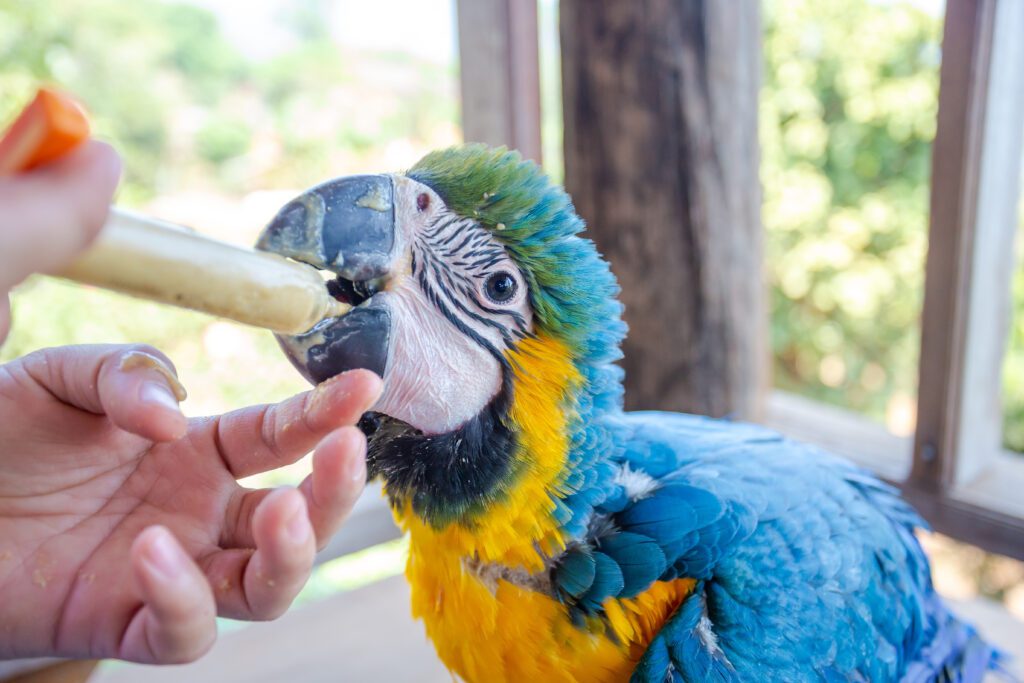Caring for an exotic pet involves unique responsibilities, including administering liquid medication via syringe if needed. Although this task may seem difficult, it is important for your pet’s health, and can be managed with patience and the right steps. At Avian & Exotic Animal Hospital of Louisiana, we’re here to guide you through this process. If you need personalized advice or would like to schedule an appointment, please call us at (504) 455-6386.


Knowing Your Pet’s Medication Requirements
A critical first step in treating your exotic pet is understanding the specifics of the medication you will be giving them. This includes the correct dose of the drug, how often the drug needs to be given each day, and the total duration of treatment. It is also important to be aware of medication storage requirements, such as the correct temperature/climate. Our veterinarians at the Avian & Exotic Animal Hospital of Louisiana will provide all of this information to you if your pet needs medication, ensuring that you are well equipped to manage your pet’s care.
Preparing for Treatment Time
Preparation is important. Before you begin, find a quiet place where you can treat your pet with minimal stress on them. Gather all the necessary things: the medicine, a container for the syringe, and a towel for handling your pet (if necessary). Making sure you have everything you need within easy reach makes the process smoother and less stressful for you and your pet.
Handling and Positioning Your Exotic Pet
When it’s time to give your pet the medicine, be careful to handle them as gently as possible. Some squirming is to be expected, but this can be alleviated by carefully holding your pet from behind, so they don’t slip out and get out. Be careful not to squeeze your pet or restrict their breathing in any way. Always make your pet’s comfort and safety a priority.
Administering Medication Correctly
For pets like chinchillas or rodents, carefully place the syringe between their teeth and cheek, where you have clear access to get the medicine into your pet’s mouth. Be sure to aim at the back of the throat to facilitate swallowing, but do not place the syringe too far back. Allow your pet to swallow the medicine at their own pace, without forcing it down too quickly. For more fussy pets, adding a little applesauce or banana to the tip of the syringe may help to encourage swallowing.
If you are going to give medicine to a bird, it is recommended that they get used to the sight of the syringe first, so they don’t get scared. Gently hold the syringe in the bird’s beak a few times, then give them a treat to help them associate the syringe with good things. You can also take the extra step and fill the syringe with sugar water and give that to your bird, so they can get used to feeding from it. Once they get used to taking the syringe, giving their medicine should not be a problem.
Aftercare and Equipment Maintenance
After administering the medication, gently withdraw the syringe and reward your pet for their cooperation. Break the syringe apart and clean it thoroughly with warm, soapy water. Let the syringe and its parts dry on a clean towel. This ensures cleanliness and readiness for the next use. Remember to monitor your pet for any changes or reactions after the medication.
Have Questions About Treating Your Exotic Pet?
Giving liquid medicine to your exotic pet can be an easy task with the right knowledge and preparation. At Avian & Exotic Animal Hospital of Louisiana, we are committed to helping you through every step of this process. For more detailed information or to book an appointment, please call us at (504) 455-6386. Your unique pet’s health is our priority, and we are here to provide the best care possible for your beloved companion.


